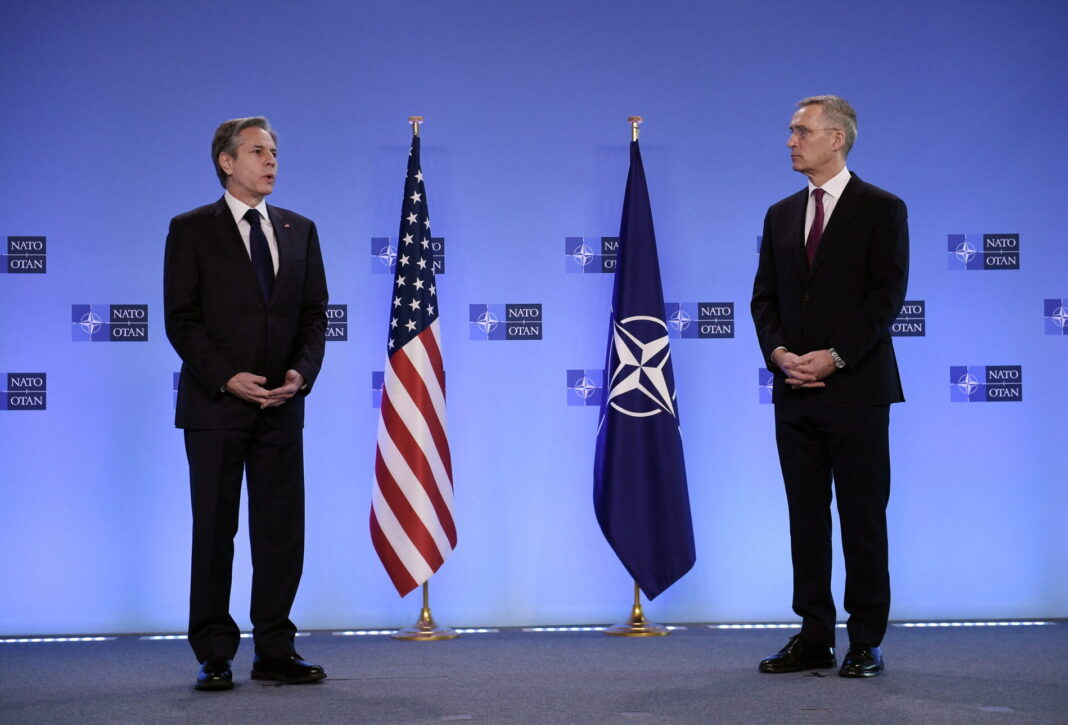The military attack on Ukraine by Putin raises the question if the time has come to create an independent EU Army. Underfunded national armed forces and latest actions (or rather missing actions) by NATO fuel the endorsement
With a war addressing European values and threatening the future of democracy, EU countries are pressured to enhance their own defence systems. In the past days, German chancellor Olaf Scholz drastically changed his reserved defence policy by setting up a €100 billion fund to strengthen the country’s armed forces and implementing a yearly increase in defence spending.
The threat of Putin to go against “Westernization” becomes more real every day and questions on new military structures are more present than ever. Already in 2018 former German chancellor Angela Merkel urged EU leaders in Strasbourg to one day create “a real, true European Army” because Europe “must take fate into our own hands.” With this, Merkel echoed President Emmanuel Macron’s words, but back then the leaders’ ideas have been labeled as premature and too ambitious. However, with Russia’s or rather Putin’s war against Ukraine, the current reality check of underfinanced, poorly equipped national armies of EU members and last year’s NATO withdrawal resulting in the collapse of Afghanistan’s government, the time seems right for supporters of an EU Army to be heard. Especially since the UK as the key opponent of the idea (br)exited the discussion forum.
Is the EU too reliant on NATO?
The main argument against the vision of an EU Army is a possible competition with NATO. Nevertheless, a common EU force would be self-sufficient when interests of the EU do not align with those of the US. At the State of Union address 2021, European Commission President Ursula von der Leyen warned, that “there will be missions where NATO or the UN will not be present but where Europe should be”.
Regarding the disastrous takeover of Afghanistan by the Taliban after the withdrawal of NATO, the EU does indeed seem too dependent on US decisions. Additionally, with the focus of the US drifting from the Transatlantic to the Asian sphere and Trump’s past threat to unilaterally remove the US out of NATO, letting the States keep the upper hand in international relations seems irresponsible. Furthermore, the announced AUKUS, a security collab of Australia, UK and US for the Indio-Pacific area cannot solely be seen as an effort to restrain China’s increasing global military power, but as an appeal for Europe to step up its game in defence matters. The EU needs to become a more relevant military actor on the geopolitical stage. Especially now with international threats such as Russia and China targeting Ukraine and Taiwan.
EU Army versus NATO
Besides being able to secure EU principles on a global security level, the biggest opportunity of a joint-military entails the possibility of pooling and sharing. A reduction of doubled capacities for chains of command, logistics and weapons would lead to a reduction in the budget spent by each member state. However, it is important to not undermine NATO, which kept Europe at peace since 1949. It must be clearly demonstrated that the EU Army would aid, not threaten the alliance. NATO Secretary General Jens Stoltenberg welcomes more EU efforts in defence affairs, but pledges to keep it in the NATO transatlantic framework.
But would an individual EU Army weaken NATO? No, a strong reliable partner would allow to share the costs for international operations and research. Further, a unified power would provide a filter for different national opinions. According to the binding mutual defence clause Article 42(7) of the Treaty of Lisbon, EU countries can only assist countries militarily in accordance with Art. 51 UN Charter. This and the CSDP, EU’s common security and defence policy ensure that the collective military would not go toe-to-toe against NATO but complement it. Besides, nearly all EU members are part of NATO and the North Atlantic Treaty is and remains a priority.
A new political will
After World War II treaties for a joint army were signed, but stopped by France in 1954. In spite of that, new movements towards a military unification have been under way since years. 4 years ago, 25 members agreed on PESCO concerning the integration of national militaries into EU force. That a united military can be successful shows the multilateral German-Dutch Corps, which fulfills NATO’s Very High Readiness Joint Task Force. Until now, governments were able to avoid the difficult questions on defence policies. While countries are currently more willing to reach the target defence spending of 2% of their GDP as outlined in the NATO charter, nations also realize the need to increase their budgets on EU level. The EU Army would provide a protective shield against power-hungry rulers and attacks on democratic values. It would also enable the EU to have more tactical influence, independent from US and UN viewpoints. With perfect timing the Commission announced a summit on European defence in France for this March, where the idea will most likely be discussed. Like the Commission’s President said, “what has held us back until now is not just a shortfall of capacity – it is the lack of political will.” But this political will could come alive now.




